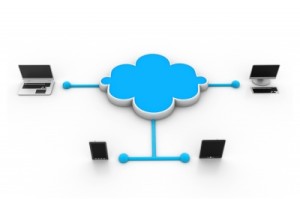 Just about everyone has heard of cloud computing by now, but what do they really mean when they talk about the cloud? Amid the “cloud-speak,” it can be difficult to know what exactly cloud is and why exactly it might be useful for a specific organization. To muddy the waters further, it doesn’t help when advertisers or companies use the word cloud when their technology is not truly cloud-based.
Just about everyone has heard of cloud computing by now, but what do they really mean when they talk about the cloud? Amid the “cloud-speak,” it can be difficult to know what exactly cloud is and why exactly it might be useful for a specific organization. To muddy the waters further, it doesn’t help when advertisers or companies use the word cloud when their technology is not truly cloud-based.
Let’s take a what cloud truly means, what it doesn’t mean, and why it might be beneficial for an organization.
True Cloud Computing
Cloud, at its core, is a way to access types of items digitally. The technology allows the customer to use services like Software as a service (SaaS), for example, rather than having to install the software from a medium to potentially hundreds or thousands of computers or devices across an organization.
Most popular software packages today are able to be cloud-based. This includes the most common suites of office software; anti-virus and firewall packages; email, data security, and storage systems; communications tools and more. Getting to the software is as easy as loading a bookmark, and that accessibility via a network is the true nature of cloud.
Time Savings
One real advantage to using cloud computing is the time savings it affords.
Imagine the rows of computers across an organization, and multiply each by the amount of time it would take to install all of the required software for workers if done via traditional methods. The result would be hundreds or thousands of hours spent simply getting employees the most basic tools needed to do the job. On top of that, a worker would be taken off the job while the machines are addressed.
Add to that the time required to service, update, and maintain the hardware infrastructure and that equates to significant labor hours. Using cloud-based technology slices this time significantly by allowing updates, installs, and maintenance to be pushed out remotely and in bulk—without ever having to get to the tenth floor to help a user.
Delays are minimal and system work is efficient.
Cost Savings
Another major benefit of cloud computing are the cost savings. Payroll is expensive, as are the prices of powering and cooling a room of hardware, or purchasing new servers. While it is true that a company MUST have hardware to function, the company’s hardware acquisitions can be lighter and less expensive since bulky software packages do not have to be saved onto each computer’s hard drive.
Cloud packages make up the storage shortfall inexpensively and may be customized so that even a small business can enjoy financial savings while still having the option of adding on as they grow.
In today’s economic landscape where employees often must wear many hats, an organization is able to maximize their labor investment by using cloud computing.
While cloud computing will not solve every problem for a business, it vastly simplifies operations and is a powerful tool that can be tailored to any size company with relative ease and convenience. Getting back to the business of growth is much easier once the details have been expertly handled.